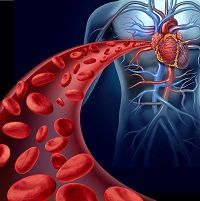Article
Consider Individual Risks, Benefits for Anticoagulation in Chronic Kidney Disease
Author(s):
Anticoagulation is recommended for members of the general population with atrial fibrillation, but its significant risks must be weighed carefully in the medically fragile chronic kidney disease population.

Anticoagulation is recommended for members of the general population with atrial fibrillation (AF), but its significant risks must be weighed carefully in the medically fragile chronic kidney disease (CKD) population. The University of Copenhagen’s Annelise Kamper, MD, discussed options and considerations for anticoagulation for individuals with atrial fibrillation (AF) and chronic kidney disease (CKD) on November 14, 2014 during Kidney Week in Philadelphia.
Kamper, a consultant in the Department of Nephrology at Rigshospitalet in Copenhagen, began by making clear that the benefits of anticoagulation for the general AF population, who see a 64% reduction in complications with use of warfarin vs. placebo. Moreover, new oral anticoagulants (NOACs) that have fewer interactions may be safer and even more effective. However, safety and efficacy of these agents has not been clear for individuals with low creatinine clearance (CrCl) and CKD.
The American Heart Association recommends individualized treatment for anticoagulation in individuals with AF and CKD, based on shared decision making, the absolute and relative risk of stroke and bleeding, and consideration of severity of renal impairment. Nonetheless, the recent KDIGO (Kidney Disease Improving Global Outcomes) guidelines call into question the benefit of warfarin for primary prevention of stroke in Stage 5 CKD.
Especially for ESRD, noted Kamper, safety and efficacy data for anticoagulation in AF are mixed at best, although ESRD itself can risk for stroke. Kamper reviewed data from a large cohort study of hemodialysis patients with incident AF showing a 2.38 odds ratio (OR) for serious bleeding complications with warfarin, with no protection against ischemic stroke. Another Canadian study showed high risk of bleeding for dialysis patients on warfarin, with no benefit in terms of stroke prevention. This is balanced, though, by a large study drawn from the Danish health registry showing that though there was increased risk of bleeding complications for dialysis patients on warfarin, there was also net significant benefit in reducing thrombotic events.
Finally, Kamper discussed findings from an in-press publication in which she and coauthors show an overall reduced risk of major cardiovascular events and all-cause mortality for AF at all stages of kidney disease. This finding held true even after adjustment for cardiovascular risk and comorbidities.
Anticoagulation may also be achieved with the NOACs, which include dabigatran (a factor II inhibitor), rivaroxaban, and apixaban (both factor Xa inhibitors). Sub- and meta-analyses of CKD data from large trials of each of these three drugs found some benefit of the NOACs in terms of safety and efficacy for those with moderate CKD (eGFR 25-30 — 50-60 mL/min). However, renal excretion is not easily monitored in these agents, a point of concern in the CKD population, in whom acute kidney injury is common. Further, there are no specific reversal agents for these medications.
Anticoagulant decision making may also include a decision support tool such as HAS-BLED or CHA2DS2-VASc. These help stratify risk of stroke in patients with AF and are useful to bring a global stroke risk assessment into a shared decision making conversation.
In conclusion, Kamper summarized that anticoagulation treatment for AF in CKD must be individualized based on risk. However, INR-monitored, dose-adjusted warfarin therapy will probably show benefit for most patients with mild to moderate CKD; aspirin shows no benefit. For those with moderate CKD, use of a NOAC may provide a better safety profile, but data are lacking in the absence of a randomized controlled trial on use of these agents in severe kidney disease.





